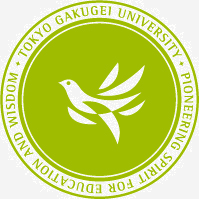Takahiro SEKIGUCHI, Ph.D.
- Professor, Department of Educational Psychology, Tokyo Gakugei University
- Majoring in Cognitive Psychology and Cognitive Neuroscience
Research Interest
- Involuntary memory and involuntary thought (mind wandering)
- Everyday cognition and everyday memory
- Reading and language processes
- Eye movement research
Education & Job History
- 1994.3 B.A., Human Sciences, Osaka University
- 1997.3 M.A., Human Scirnces, Osaka University
- 1997.4 Visiting student in Department of Integrative Physiology, National Institute for Physiological Sciences (-1998.3)
- 2000.3 Ph. D. Human Sciences, Osaka University
- 2000.4 Research Fellow, Japan Society for the Promotion of Science at Osaka University
- 2001.4 Assistant Professor, Tokyo Gakugei University
- 2004.7 Associate Professor, Tokyo Gakugei University
- 2019.4 Professor, Tokyo Gakugei University
Publications
Peer reviewed papers
- Sekiguchi, T. (2023). Curiosity makes your mind wander: Effects of epistemic curiosity and trait anxiety on mind wandering. Personality and Individual Differences, 204, 112069.
- Amemiya, S., Tsukamoto, K., Ougihara, T., & Sekiguchi, T. (2021). The needs of teacher training on the competency development of students: Focus on online training. Bulletin of Japan Association of Universities of Education, 39, 51-62. [In Japanese]
- Negishi, K. & Sekiguchi, T. (2020). Individual traits that influence the frequency and emotional characteristics of involuntary musical imagery: An experience sampling study. PLOS ONE, 15(6), e0234111.
- Sekiguchi, T. (2018). Task-unrelated thought depends on the phonological short-term memory system more than the visual short-term memory system. Acta Psychologica, 190, 228-238.
- Otsuka, S. & Sekiguchi, S. (2016) Awareness of mind-wandering by receiving external stimuli. Japanese Journal of Cognitive Psychology, 13(2), 81-91. [In Japanese]
- Sekiguchi, T. & Nonaka, S. (2014). The long-term effect of perspective change on the emotional intensity of autobiographical memories. Cognition & Emotion, 28(2), 375-383.
- Sekiguchi, T. & Yoshida, Y. (2012). Characteristics of visual attention in dyslexic children:effective visual field in reading and visual attention span. Japanese Journal of Learning Disabilities, 21(1), 70-83. [In Japanese]
- Sekiguchi, T. (2011). Individual differences in face memory and eye fixation patterns during face learning. Acta Psychologica, 137(1), 1-9.
- Sekiguchi, T. & Kobayashi, S. (2011). Eye fixation patterns of children with developmental dyslexia when reading hiragana-words, texts, and Kanji-characters. Japanese Journal of Learning Disabilities, 20(2), 181-194. [In Japanese]
- Amemiya, Y., Taka, F., & Sekiguchi, T. (2011). Comparison of the specificity of musically cued autoboigraphical memories. Japanese Journal of Psychology, 82(3), 270-276. [In Japanese]
- Ikeda, K., Sekiguchi, T., & Hayashi, A. (2010). Concentrated pitch discrimination modulates auditory brainstem responses during contralateral noise exposure. Neuroreport, 21(5), 359-366.
- Ikeda, K., Sekiguchi, T., & Hayashi, A. (2008). Attention-related modulation of auditory brainstem responses during contralateral noise exposure. NeuroReport, 19(16), 1593-1599.
- Sekiguchi, T. & Koike, T. (2007). Stroop performance and difficulties of older adults using automatic teller machines. Perceptual and Motor Skills, 105(3), 923-926.
- Sekiguchi, T. & Nishitani, N. (2006). The Effect of the number of possible words on word completion: An MEG study. NeuroReport, 17, 1637-1641.
- Amemiya, Y. & Sekiguchi, T. (2006). An experimental study on emotional valence of involuntary autobiographical memories. Japanese Journal of Psychology, 77, 351-359. [In Japanese]
- Ikeda, K., Hayashi, A., Sekiguchi, T., & Era, S. (2006) Attention effects at auditory periphery derived from human scalp potentials. International Journal of Neuroscience, 116(10), 1187-1205.
- Sekiguchi, T. (2006). Effects of lexical prosody and word familiarity on lexical access of spoken Japanese words. Journal of Psycholinguistic Research, 35, 369-384.
- Sekiguchi, T. & Koyama-Takeichi, S. (2005). Recent MEG studies for neural mechanisms of reading. Japanese Journal of Phisiological Psychology and Psychophysiology, 23, 39-51. [In Japanese]
- Sekiguchi, T., Koyama, S., & Kakigi, R. (2004). The effect of phonological repetition on cortical magnetic responses evoked by visually presented words. Journal of Cognitive Neuroscience, 16, 1250-1261.
- Sekiguchi, T., Koyama, S., & Kakigi, R. (2001). The effect of stimulus repetition on cortical magnetic responses evoked by words and nonwords. NeuroImage, 14, 118-128.
- Sekiguchi, T., Koyama, S., & Kakigi, R. (2000). The effect of word repetition on evoked magnetic responses of the human brain. Japanese Psychological Research, 42(1), 3-14.
- Sekiguchi, T. (1999). Locus of semantic satiation examined with a serial matching task. Perceptual and Motor Skills, 89, 753-759.
- Sekiguchi, T., & Nakajima, Y. (1999). The use of lexical prosody for lexical access of the Japanese language. Journal of Psycholinguistic Researchy, 28, 439-454.



